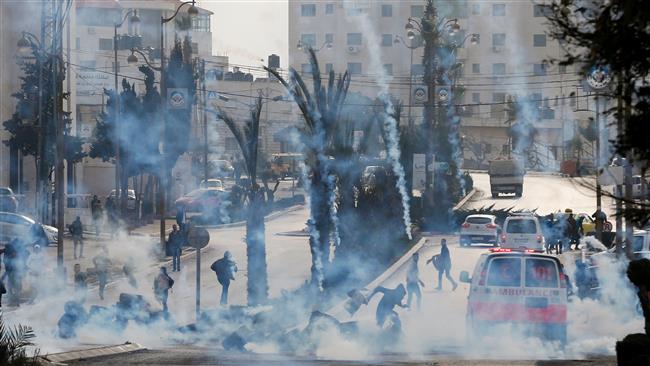
RNA - "We have taken the decision not to participate in the meeting of the (Palestinian) Central Council in Ramallah," Hamas said in a statement on Saturday, but underlined its "commitment to the unity of our people."
"The conditions under which the committee will be held will not enable it to carry out a comprehensive and responsible political review, and will prevent decisions that reach the level of our aspirations," the statement added.
The Islamic Jihad also said it would not participate in the meeting, criticizing lack of practical measures on behalf of the Palestinian Authority (PA) with regard to the recent al-Quds crisis.
The Islamic Jihad said it was expecting the PA to put an end to its security coordination with Israel and stop recognizing the regime.
The two-day meeting will bring together the heads of the Palestine Liberation Organization. Hamas and the Islamic Jihad were invited to attend despite not being part of the PLO.
Hamas had wanted the venue of the meeting to be outside the Palestinian territories, but Palestinian President Mahmoud Abbas decided to host it in Ramallah instead.
The Hamas statement said Abbas’ decision had left them subject to the "pressures" of Israel, as the regime regularly arrested Hamas officials.
The development casts further doubt over the prospect of a reconciliation deal between Hamas and Abbas’ Fatah party.
The two sides signed a reconciliation deal in Egypt in October 2016, under which the PA is to take control of the Gaza Strip and end a string of punitive measures against the coastal enclave, including its refusal to pay Israel to provide the besieged territory with electricity.
The PA, however, has missed a deadline for the takeover of the Gaza Strip, which had been set for December 1, and continues to implement sanctions against the enclave.
This comes amid a new wave of tensions across the occupied Palestinian territories, which started after US President Donald Trump announced his decision on December 6 to recognize Jerusalem al-Quds as Israel’s capital and move Washington’s embassy to the city.
The PA says it would reject all so-called peace talks, sponsored by the US, until Washington rescinds its decision on al-Quds.
Washington’s dramatic U-turn on Jerusalem al-Quds drew global condemnations, prompting the UN General Assembly to overwhelmingly approve a resolution against Trump’s declaration in December 2016.
On January 2, Trump, in a number of tweets, threatened to cut Washington’s aid to Palestinians, saying that the PA was no longer willing to engage in the so-called peace talks with Israel.
Trump tweeted “with the Palestinians no longer willing to talk peace, why should we make any of these massive future payments to them?,” and added, “We pay the Palestinians HUNDRED OF MILLIONS OF DOLLARS a year and get no appreciation or respect.”
Both the PA and Hamas have slammed Trump’s threat as political “blackmail,” stressing that the Palestinian nation will not give in to such pressure tactics.
847/940